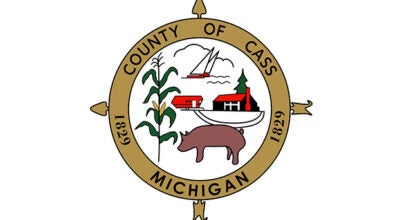COA millage proposal approved
Published 8:00 am Tuesday, May 24, 2016
Cass County voters will decide whether or not they want to pay slightly more for the care provided to the county’s population of senior citizens in August.
The Cass County Board of Commissioners unanimously approved the placement of a millage renewal proposal for the Cass County COA on the upcoming primary election ballot Aug. 2 during the board’s meeting Thursday in Cassopolis.
The proposal will ask voters whether or not they wish to raise the COA millage rate from .9036 mills to 1 mill, the highest allowed under state law for senior services agencies, with the revenue generated used to provide funding for the operation of the county agency.
According to the language of the proposal, should voters approve the measure, the higher millage rate will begin being accessed on county property taxes Dec. 1, 2017, and will be in effect for a period of four years. The COA anticipates that nearly $2.1 million worth of revenue will be generated over the life of the millage.
COA CEO Bob Cochrane first requested the millage increase to the county board in March.
“Our income has been pretty flat, though during that same time period we’ve seen a rise in the cost of the resources we use to provide our services,” said Stacy Srivastava, community development team leader with the COA. “This small increase will make a huge difference in our ability to keep these services affordable and to keep providing them at the same level of quality.”
These services include the COA’s Meals on Wheels program, adult day service, in-home care and medical transportation, and an assortment of daily educational, fitness and social programs, Srivastava said.
The millage plays an essential role in providing funding for the COA’s services, as it accounts for 60 percent of the agency’s annual operating budget, Srivastava said.
With 1 in 4 county residents over the age of 60, the millage rate also affects a large portion of the area’s population, she said. However, the raise won’t significantly burden the taxpayers themselves, she added.
According to the COA, a homeowner with an assessed value of $50,000 would pay an additional 40 cents a month, or less than $5 a year, should the millage be approved.
“That small impact on households will make a huge difference to area seniors,” she said.






